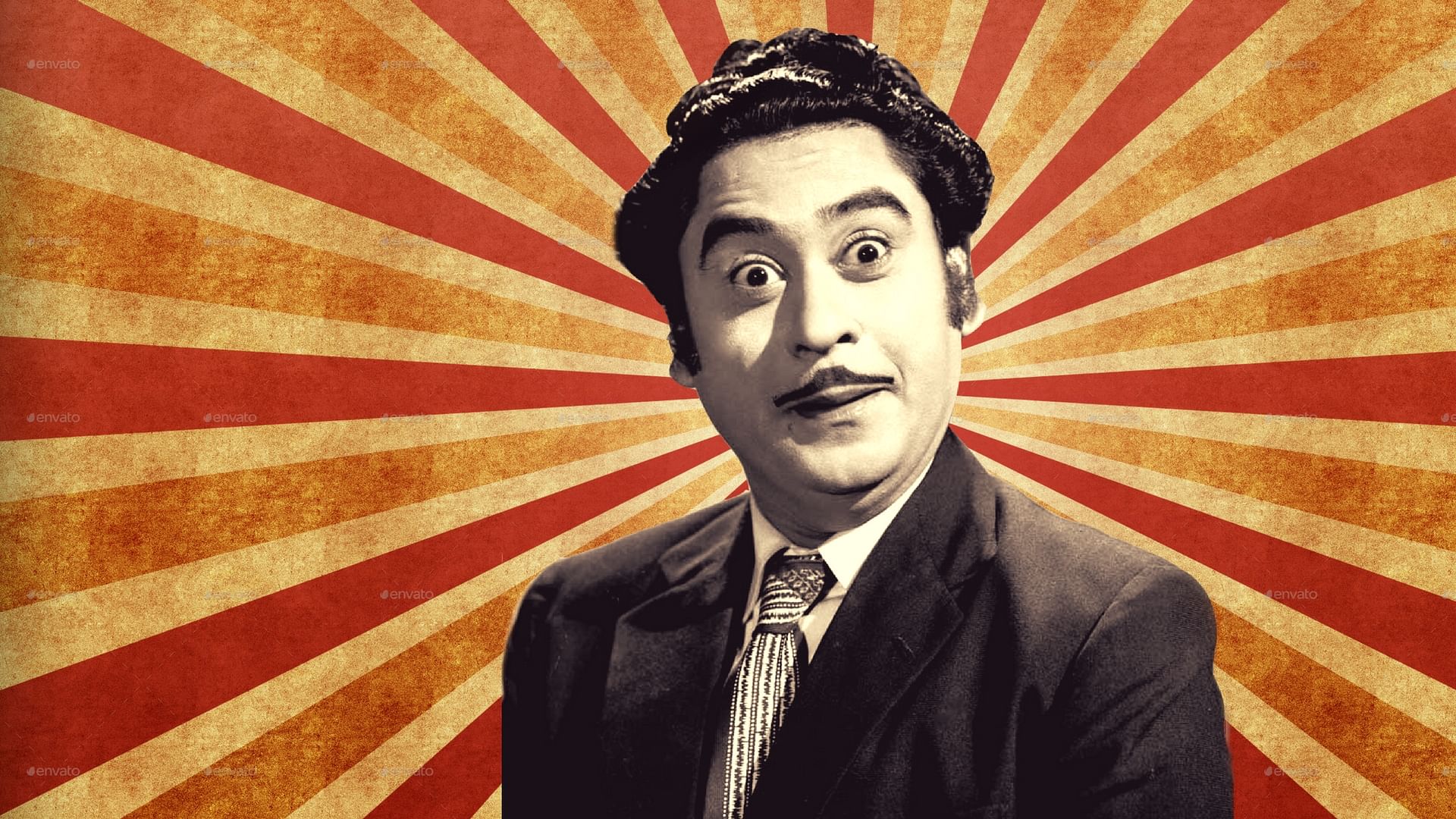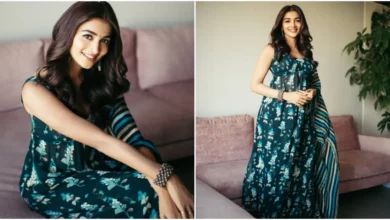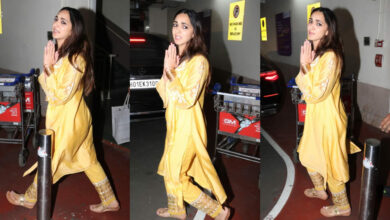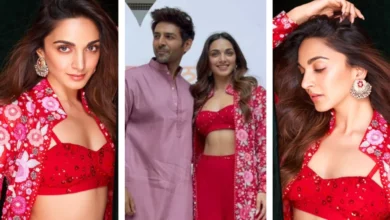Some Amazing Lesser Known Fun Trivia Facts About Kishore Kumar

Kishore Kumar, an Indian playback singer, actor, music director, lyricist, writer, director, producer, and screenwriter, was initially called Abhas Kumar Ganguly but was better known by his stage name (Kishore Kumar). Kumar was undoubtedly one of the most talented and famous singers in the Indian film industry. From soft tracks to peppy numbers to romantic moods, Kumar sang in different genres and was very versatile. Still, some of his rare compositions, which were considered classics, were said to be lost in time. According to Kumar’s brother Ashok Kumar, the cause of Kumar’s success was since his voice hit the mouthpiece directly at its most precious delicate point. He is generally considered as one of the best Indian vocalists that have ever lived and are still alive in people’s hearts. Since his voice hit the mouthpiece straightforwardly at its most fragile point, he is commonly seen as outstanding amongst other Indian entertainers that have ever lived and will probably be cherished by many more upcoming generations.
The Hindi language did not just bound him as he sang in many Indian languages, including Bengali, Marathi, Kannada, Bhojpuri, Malayalam Assamese, Gujarati, and Urdu. He also used to sing on private albums in numerous languages, especially in Bengali. Kumar was awarded 8 Filmfare Awards for Best Male Playback Singer, and he still holds the great record for winning the most Filmfare Awards in this category up until now. He was also then awarded the “Lata Mangeshkar Award” by the Madhya Pradesh government in the year 1985–86. In 1997, the Madhya Pradesh Government initiated an award called the “Kishore Kumar Award” for the contributions to Hindi cinema. In 2012, Kishore Kumar’s unreleased last song sold for Rs 1,560,000 (1.56 million) at the Osian’s Cinefan Auction at new Delhi.
Early Life
Kumar was born into a Bengali Brahmin (Ganguly) family in Khandwa, Madhya Pradesh, as Abhas Kumar Ganguly. Kunjalal Ganguly (Gangopadhyay), Kumar’s father, was a lawyer, and his mother, Gouri Devi, came from a wealthy Bengali family and was a housewife. Kamavisadar Gokhale’s family of Khandwa then hired Kunjalal Gangopadhyaya to be their personal lawyer. Of all the four siblings Ashok (the eldest), Sati Devi, Anoop, and Kumar, Kumar was the youngest.
While Kishore was a child, his brother Ashok became a Bollywood actor/star. Later, Anoop also stepped into the cinema with Ashok’s help. He completed his graduation from Christian College, Indore.
CAREER
When Ashok Kumar stepped into cinema and became a star of Hindi films, the Ganguly family visited Bombay (now Mumbai) regularly. Abhas Kumar then changed his name to ‘Kishore Kumar’ and tried his cinema career started as a chorus singer at the Bombay Talkies, where his real brother also worked. Kumar’s first appearance in a film was in the movie Shikari (1946), in which his brother, Ashok, played the lead role. For the film, Ziddi (1948), Music director Khemchand Prakash was the one who gave Kumar this opportunity to sing “Marne Ki Duayen Kyon Mangu.” After this song, Kumar was offered many other assignments, but he was not very serious about a film career. In 1949, he settled in Bombay. Kumar then played the lead role in the Bombay Talkies film Andolan (1951), directed by Phani Majumdar. Although he got some acting roles with his brother’s help, he was more interested in becoming a singer as he has an interest in it. But Ashok wanted Kumar to be a great actor. Between the year 1946 and 1955, Kumar acted in 16 were flops 22 films of which and as he was disinterested in taking up acting as a career, he would always somehow find ways to settle well in the bad books of the producer or director, so that they throw him from their films. Only after the success of many films such as Miss Malaysia, Char Paise Ladki, Naukari, and Baap Re Baap that Kumar developed a serious interest in acting, which eventually resulted in him having a successful film career as the lead actor between 1955 and 1966.
During the starting stage of his career, Kumar was highly inspired by singer K. L. Saigal and tried to imitate his style of singing in some of his early films. He had great respect for musician and poet Rabindranath Tagore who influenced him in many different ways.
He was a huge admirer of Hollywood actor-singer Danny Kaye. He used to hang the portraits of all these three personalities at his Gouri Kun residence and would bow respectfully before them each day as a rule.
Then In his later career, Kumar became heavily influenced by famous playback singer Ahmed Rushdi, and his liking towards Rushdi was that he formerly paid a tribute at Royal Albert Hall in London by singing some of his songs.
Kumar embedded yodeling in many of his songs, including; Zindagi Ek Safar hai suhana, Tum bin Jason Kahan, and Chala jata hoon. The style eventually became a unique feature of his singing, which was inspired by Jimmie Rodgers and Tex Morton.
Kumar then starred in Hrishikesh Mukherjee’s directorial debut Musafir (1957) and Bimal Roy’s Naukari (1954), and Salil Chowdhury was dismissive of Kumar as a singer when he found that Kumar had no prior formal training in music. However, after hearing his voice, Chowdhury was bound to give him the memorable song Chhota Sa Ghar Hoga, which was to be sung by Hemant Kumar.
His films that were commercially successful were Ladki (1953), Naukari (1954), Baap Re Baap (1955), Mr. X in Bombay (1964), Ganga Ki Lahren (1964), Hum Sab Ustaad Hai (1965), Paisa Hi Paisa (1956), New Delhi (1956), Naya Andaz (1956), Chacha Zindabad (1959), Man-Mauji (1962), Jhumroo (1961), Half Ticket (1962), Haal E Dil, Pyar Kiye Jaa (1966), and Padosan (1968) Shreeman Funtoosh (1965), Ek Raaz (1963),.Jaalsaaz (1959), Dilli Ka Thug (1958), Bombay Ka Chor (1962), Bhai Bhai (1956), Bhagam Bhaag (1956), Aasha (1957), Chalti Ka Naam Gaadi (1958), As an actor. His best period was between 1954 and 1966. His on-screen coupling with actresses Mala Sinha, Vyjayanthimala, Nutan, Madhubala, and Kumkum gave him the biggest hits in his career.
Chalti Ka Naam Gaadi (1958), hos very own home production, had all the three Ganguly brothers and Madhubala in main roles. Kumar played the character of a car mechanic who would romance with a renowned city girl; (Madhubala) with a further plot involving the brothers.
In his movie Half Ticket, for one of the songs – “Aake Seedhi Lagi Dil Pe” – music director Salil Chowdhary wanted Kumar and Lata Mangeshkar to do a duet song. But since Lata Mangeshkar was out of town and Salil Chowdhury had to record that song before she would return, Kumar solved the problem by singing both the male and female parts of the song on his own. The duet was actually for Pran and Kumar on the screen dressed as a woman. It just turned out to be a fine work as he did admirably well in singing both male and female voices.
Music director S. D. Burman is always credited for spotting Kumar’s talent for singing. During the filming of the movie Mashaal (1950), Burman went to Ashok’s house, where he heard Kumar imitating K. L. Saigal. He complimented him and advised the music director for Naukri that he should develop an attractive style of his own instead of copying Saigal. Kumar eventually developed his own great style of singing, which he was inspired by the records of Jimmie Rodgers and Tex Morton . S. D. Burman kept making Kishore sing songs for Dev Anand from the 50s to the early 70s. S. D. Burman provided him all the training and encouraged Kumar a lot, especially in the late 50s, and early 60s resulted in Kumar developing into a unique and great singer in the future.
S. D. Burman recorded Kumar as he sang songs for Dev Anand’s Munimji (1954)Jewel Thief (1967), Prem Pujari (1970), Paying Guest (1957), Guide (1965), Taxi Driver (1954), Funtoosh (1956), Nau Do Gyarah (1957), House No. 44 (1955), and Tere Mere Sapne (1971). He composed music for Kumar’s home production Chalti Ka Naam Gaadi (1958). Some of their famous songs were “Hum Hain Rahi Pyar Ke” from Nau Do Gyarah (1957), “Ek Ladki Bheegi Bhaagi Si” from Chalti Ka Naam Gaadi.” Ai Meri Topi Palat Ke Aa” “Maana Janaab Ne Pukara Nahin” from Paying Guest (1957), from Funtoosh (1956), and Asha Bhosle and Kishore recorded duets composed by Burman including “Chhod Do Aanchal” from Paying Guest (1957 )Paanch Rupaiya Baara Aana” from Chalti Ka Naam Gaadi (1958) and . “Arre Yaar Meri Tum Bhi Ho Gajab” from Teen Deviyan (1965) and Ankhon Mein Kya Ji” from Nau Do Gyarah, the very famous “Haal Kaisa Hai Janaab Ka.”
As a singer, Kumar’s work with many talented music directors in this period includes some of the songs like Hum Toh Mohabbat Karega” from Dilli Ka Thug, “Ye Raatein Ye Mausam” and “Piya Piya Mora Jiya” Baap Re Baap, “Pyaar Baatke Chalo” and “Kya Teri Zulfein Hai” from Hum Sab Ustaad Hai, “Machalti Hui” from Ganga Ki Lahren, “Mera Dil Meri Jaan” and “Pyar Ka Jaahan Hotel” from JaalsaaJahanobsurat Haseena” from Mr. X in Bombay, “Sultana Sultana” from Shreeman Funtoosh “Gaata Rahe Mera Dil” from Guide (1965), and “Yeh Dil Na Hota Bechara” fr, om Jewel Thief (1967). “Hello, Hello Ji” from Bombay Ka Chor, “Zaroorat Hai Zaroorat Hai” from Manmauji (1961), “Suno Jaana Suno Jaana” “Likha Hai Teri Ankhon Mein” from Teen Deviaan, “Micheal Hai Toh Cycle Hai” from Bewaqoof, “Ae Haseeno Nazneeno” from Chacha Zindabad,
Another music director C. Ramchandra also recognized Kumar’s talent as a singer. They collaborated on many songs, including “Eena Meena Deeka” from Aasha (1957). Some of Kumar’s work includes “Nakhrewaali” from New Delhi (1956) by Shankar Jaikishan, “Chhedo Na Meri Zulfein” from Ganga Ki Lahren by Chitragupta. “C.A.T. Cat Maane Billi” and “Hum To Mohabbat Karega” from Dilli Ka Thug (1958) by Ravi,
Kumar acted and composed the music for Jhumroo (1961) and also wrote the lyrics for the film’s title song, “Main Hoon Jhumroo.” Then he produced and directed Door Gagan Ki Chhaon Mein (1964). After that, he also wrote the script and composed music for the film, which is about the relationship between a father (played by Kumar) and his deaf and mute son (played by his real-life son Amit Kumar).
After 1966, as an actor, Kumar had the bad habit of coming late for the shootings or bunking them altogether. His films frequently flopped after 1965, and he faced income tax trouble as their result.
In 1968, the talented Rahul Dev Burman worked with Kumar on the soundtrack of the film Padosan (1968), in which Kumar sang the song “Mere Saamne Wali Khidki Mein” and “Kehna Hai.” Padosan was a complete comedy movie featuring Kishore as a dramatist-musician, Mehmood as a Carnatic dance and music teacher, and Sunil Dutt as a simpleton named Bhola. Kishore’s got the inspiration for his character from his uncle, Dhananjay Bannerjee, a classical singer. The main highlight of the film was a musical, comical duel between Kumar, Sunil Dutt, and Mehmood in the song “Ek Chatur Nar Karke Singaar.”
In 1969, Shakti Samanta directed and produced Aradhana. Kumar sang three songs in the film; “Kora Kagaj Tha Ye Man Mera,” “Mere Sapnon Ki Rani,” and “Roop Tera Mastana.” Shakti Samanta suggested Kumar sing the other songs too. When the film was released, Kumar’s these three songs established him as a leading Bollywood playback singer. Kumar then won his first Filmfare award for “Roop Tera Mastana.”
PERSONAL LIFE
Kumar was married four times. His first marriage was with a Bengali singer and actress, Ruma Guha Thakurta, aka Ruma Ghosh. Their marriage lasted from 1950 to 1958. His second wife was a famous and beautiful actress Madhubala, who had previously worked with him in many films, including his own home production Chalti Ka Naam Gaadi (1958) and Jhumroo (1961). When Kumar had proposed to her, Madhubala was very ill and was planning to go to London for treatment. She was suffering from a ventricular septal defect (hole in the heart), and he was still married to Ruma. After his divorce, Madhubala and Kumar had a civil wedding in 1960, and Kumar changed his name to Karim Abdul. He was converted to Islam reportedly. His parents still refused to attend their marriage ceremony. The couple also had a Hindu marriage ceremony to please Kumar’s parents, but Madhubala was never truly accepted as his wife till the end. Just within a month of their wedding, Madhubala moved back to her bungalow in Bandra because of tension in the Kumar’s household. However, they remained married, under great strain for the remainder of Madhubala’s life. Their marriage then ended with Madhubala’s death on 23 February 1969. Kishore then had his third marriage to Yogeeta Bali and lasted from 1976 to 4 August 1978. Kishore’s last marriage was with Leena Chandavarkar from 1980 until his death. He had two sons and Sumit Kumar with Leena Chandavarkar and Amit Kumar with Ruma.





